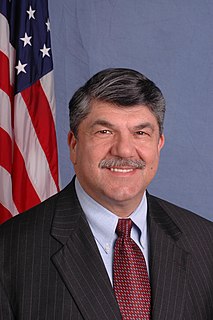A Quote by Marc Faber
The fallacy of monetary policy in the U.S. is to believe this money will go to the man on the street. It won't. It goes to the Mayfair economy of the well-to-do people and boosts asset prices of Warhols... Very happy. Very good for the Fed. Congratulations, Mr. Bernanke.
Related Quotes
Hank Paulson, obviously, had spent his career on Wall Street, had a deep knowledge of the Street, and also was a very forceful personality, had a very good relationship with the president, and was in a very different place, for example, than Ben Bernanke, who is an academic, quiet guy: spent most of his time thinking about monetary policy.
There is no doubt that the Fed's large-scale asset purchases have caused major increases in a number of asset prices in the economy. This is especially true of mortgage backed securities and corporate bonds, and quite possibly of equities as well. For those people and institutions holding those things, the run up in prices has been a wealth bonanza.
During the Greenspan-Bernanke era, the Fed has embraced the view that stability in the economy and stability in prices are mutually consistent. As long as inflation remains at or below its target level, the Fed's modus operandi is to panic at the sight of real or perceived economic trouble and provide emergency relief.
The underlying strategy of the Fed is to tell people, "Do you want your money to lose value in the bank, or do you want to put it in the stock market?" They're trying to push money into the stock market, into hedge funds, to temporarily bid up prices. Then, all of a sudden, the Fed can raise interest rates, let the stock market prices collapse and the people will lose even more in the stock market than they would have by the negative interest rates in the bank. So it's a pro-Wall Street financial engineering gimmick.
Inflation is certainly low and stable and, measured in unemployment and labour-market slack, the economy has made a lot of progress. The pace of growth is disappointingly slow, mostly because productivity growth has been very slow, which is not really something amenable to monetary policy. It comes from changes in technology, changes in worker skills and a variety of other things, but not monetary policy, in particular.
The theoretician of the Marxist revolution in Cuba certainly wasn't Castro. It was Don Carlos Rafaelo Rodriguez. He was the theoretician and very often people say he will take over. But I don't believe it. I think that it's a very good combination - the Catholic man working together with a man like that who has everything pretty well planned.
































